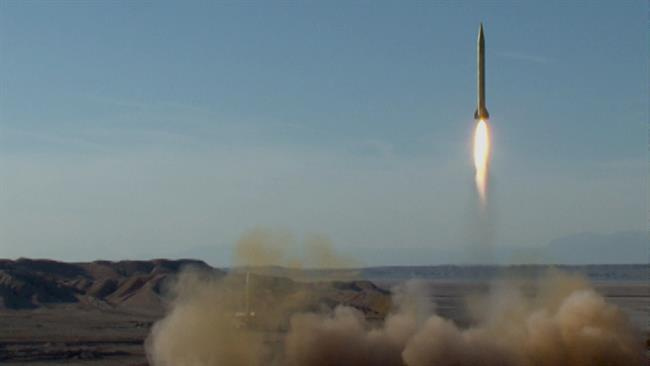Should Iran’s missiles be open to negotiation?

During his recent visit to the UK, Iran's Deputy Foreign Minister Abbas Araghchi threatened Iran would withdraw from the nuclear deal if it could not use its economic benefits. This comes after President Donald Trump has repeatedly called for US' withdrawal from the deal. The five other parties to the deal, including the EU trio, all want to keep the deal. Now that the US is unable to walk out of the deal, international relations experts believe it is trying to strike a consensus against Tehran over its missiles program. The question is what Araghchi's UK visit and remark are supposed to mean.
Iran's former ambassador to London Jalal Sadatian has told moderate website Fararu in an interview published on Saturday that the US is making allegiances in Europe over Iran's missile program in an effort to end international isolation. "Iran's diplomatic apparatus should not stop at what Mr. Araghchi has said. Iran should convince the Europeans that its missiles are for defense purposes, not for aggression. Iran should convince Europeans to continue their stance about the JCPOA and refuse to change their way. A consensus among Europeans and their allegiance with Trump against Iran could be dangerous, resulting in new sanctions," Sadatian warned. "Iran should not let the Israeli lobby and Trump emerge from isolation and put us on the defensive. This creates trouble for Iran," he added.
Speaking of Araghchi's recent UK visit, Sadatian said the objective seemed to be shattering Europe's support of Trump. "Iran's diplomatic apparatus should be able to actively work in this line. In addition, Europe visits can be used to discuss financial transfers, the appropriate implementation of the nuclear deal, and other issues related to the deal," he said.
In response to a question on how likely it is for the missiles program to come up during these talks, Sadatian said diplomacy takes the real situation into consideration and that is why the game theory rules over diplomacy. "If you want to stand firmly on your position in international issues, you should have the upper hand in different areas . Missiles become a subject of negotiation when problems press you from different sides" the former diplomat said.
"We have said we will not negotiate our defense issues and we have stood firm on this, but if this makes the UK, France and Germany to ally with the US again and issue UN Security Council resolutions against us, we should be wise to prevent it," Sadatian said.
Iran's former ambassador to the UK cast doubt over Araghchi's ultimatum that Iran would withdraw from the deal since Iran has already benefited from the JCPOA. The deal for Iran, he said, cast away the shadow of war, reduced cargo transportation costs and insurance risks, enabling the country to buy certain goods from the main vendor. He also noted that large banks and financial institutes have declined to establish ties with Iran under US pressure, even though many European banks are already taking step to establish financial ties with the country. "As a senior negotiator, Mr. Araghchi encourages the other side saying cooperation with Iran is beneficial while at the same time does make threats when appropriate. We should be able to enjoy the benefits of the deal as much as possible. Europeans cannot implement some parts and fail to implement others because of US pressure and that may be the reason Mr. Araghchi gave the ultimatum," Sadatian explained.

